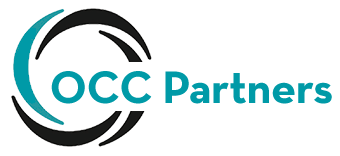How Do You…A Healthcare Professional, Handle Gaps In Your Resume?
 You took time out from your work, now you’re wondering…how do I explain it. Will it hurt my ability to get another job, much less a job I want?
You took time out from your work, now you’re wondering…how do I explain it. Will it hurt my ability to get another job, much less a job I want?
Let’s start with the first question:
How do you explain a gap in your resume?
Foremost, transparency from the start is highly recommended. Be honest. But, don’t pour out your whole story and explanation. That information should only be passed along to close friends and family. If you aren’t prepared and don’t have your elevator story set, you could end up having your absence hurt your chances of getting that job.
Start by preparing, planning what you’ll say, what your story will be and begin with an honest, concise explanation of what happened.
Examples:
- Laid off: You were laid off. If others were laid off at the same employer, include it. If no one else was laid off, you need a plausible explanation why it happened to you. It may be the number of patients were declining, or they needed to reduce everyone’s hours, or they lost funding. But, what if you had difficulty learning something specific? Explain why, and how you’ve overcome the challenge. Don’t expect to avoid it. You’ll need to tackle it head on. If it was due to differences with management, state that, but concisely, and then add information such as the circumstances, the result, and what you’ve learned. Explain how it’s made you a better professional. And be prepared with this information before you start applying for any jobs.
- Family illness: Whether it was you, a family member or parent, explain the reason concisely and add what you learned throughout that will benefit you in the future. You don’t need to reveal who was ill, what the illness was, for how long, or what support you provided, and if it was you, you don’t need to tell a future employer. I hate to admit it, but there will always be lingering concerns that you could be at risk for future health issues if you reveal too much.
- Raising children: If you took time off to raise a family, everyone will celebrate you, although they may not say it. Your next employer will appreciate your dedication to your family. But you do need to explain it quickly, and explain what you’ve learned while you were not working that would benefit them directly. This could include volunteering at a professional organization (even if you just started recently), any additional learning or training you received, or a skill you learned while at home. A valuable skill may be as simple as ‘I learned how to handle conflict with others, because of an experience I had and what I learned from it.’ If it’s a skill an employer will value, it’s likely a skill that will provide reception of both your time off and your new skill. Lastly, confirm that you’re ready to return to work and have all the reasons you took time off resolved. Be swift and definite with this statement. Then move on. Most employers will too, and they’ll appreciate your family values.
- Business venture: You had an opportunity to go after a dream, but it didn’t work out. Explain it briefly, and absolutely guarantee employers you won’t be returning to it, you’re committed to this career now, or if it’s still ongoing, that your participation there is minimal.
- Return to school: This is likely the easiest to explain because you just need to say it, and explain what you learned that will benefit your employer in the future. Again, be succinct.
Where do you begin to tell people you’ve had a gap?
 Right from the start…on your resume is best. Use a chronological resume and put it on there. We can’t say it enough, transparency, transparency, transparency. You can state it like this on your resume:
Right from the start…on your resume is best. Use a chronological resume and put it on there. We can’t say it enough, transparency, transparency, transparency. You can state it like this on your resume:
Family Leave (2015 to 1/2017)
Took time off support a family member. Or, if it was you, state ‘Personal Reasons’ as your title, then don’t give a reason here, but do take classes or do some volunteering before you start applying for a job.)
- Continuing education classes you took.
- Research you did during this period.
- Volunteering you did during this period.
Whatever the reason there’s a gap, deal with it quickly, be honest and transparent. Your values and ethics are always being considered – and a gap in employment often reveals your character, values and ethics. The life choices we make reveal a person’s substance.
For more information about opportunities or next steps, check out our employment opportunities or contact us!

